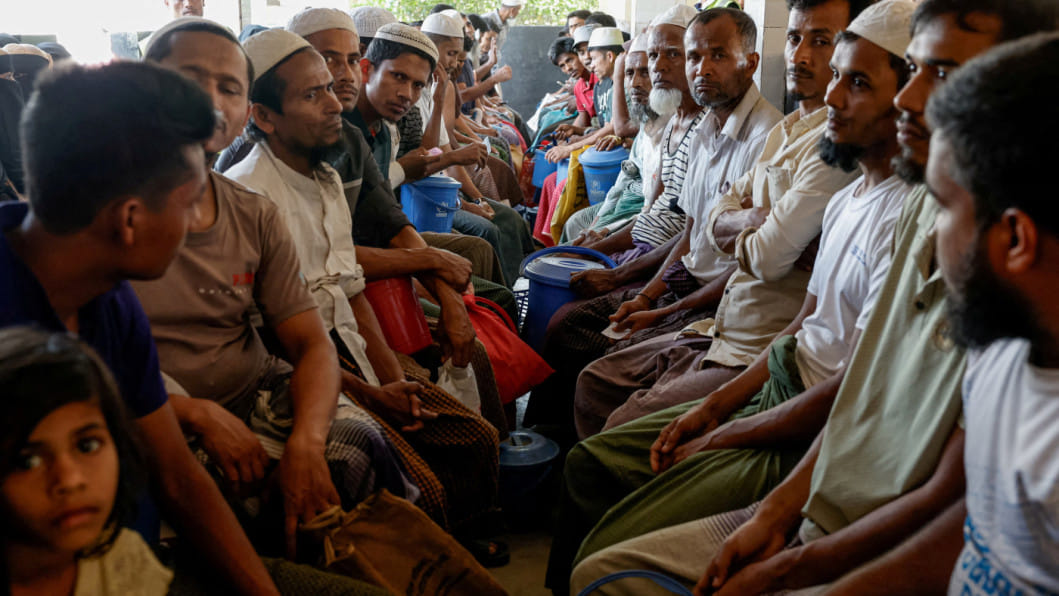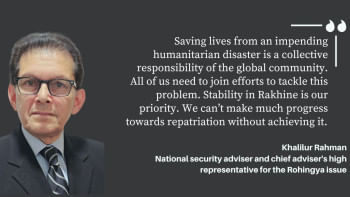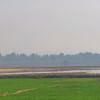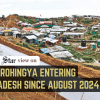Myanmar’s new realities demand a new Rohingya strategy

The idea of opening a humanitarian channel into Myanmar's Rakhine State to deliver aid directly to the Rohingya certainly carries a moral appeal. With Bangladesh having sheltered nearly one million Rohingya refugees for over six years—most of them crammed into overcrowded camps in Cox's Bazar—it's understandable that many are looking for ways to ease this burden. Aid from the international community has started to decrease, and security concerns both inside the camps and along the border are becoming more serious. But good intentions are not always enough, especially in a region so complex and fragile. Sometimes, if you rush into something that seems noble, you might unintentionally open the door to even greater instability.
A humanitarian channel sounds simple, but history tells us it rarely is. The world has seen many such aid channels/corridors in the past, and most of them haven't ended well. In the 1990s, when the Balkans were torn apart by war, the UN declared places like Srebrenica and Gorazde as "safe areas." Despite international presence, those areas became sites of horror—especially Srebrenica, where thousands of people were massacred. In Syria, corridors in Aleppo and Ghouta were frequently manipulated. Instead of delivering safety, they became tools of war used by both government and opposition forces to control populations and divert aid. Even in Ethiopia's Tigray region, where the UN tried to create access routes for aid, efforts were blocked or undermined by the warring parties, and the result was famine.
These experiences tell us that aid routes can go wrong—and they often do. They are vulnerable to being misused, especially in places where there is no clear control, where there are multiple armed actors, and where international trust is already thin. In such settings, what starts as a route for food and medicine can quickly turn into a passageway for weapons, fighters, or influence. In the end, the very people the aid is meant to help end up in even more danger.
When we look at the current situation in Myanmar, it's important to understand how complicated things have become. This is not a simple case of a government suppressing a minority population. Over the last few years, new players have emerged on the ground. One of the most powerful among them is the Arakan Army (AA), an ethnic armed group that now controls large stretches of northern Rakhine, especially the areas close to the Bangladesh border. Ironically, while Bangladesh and most ASEAN countries maintain diplomatic relations with Myanmar's junta—the military regime that technically runs the country—it's the AA that holds power in the region where the aid channel would likely pass through.
If aid flows through an area controlled by the AA, it may end up strengthening them, even unintentionally. In any war, supply is as powerful as any weapon. If aid turns into a way to boost the logistics and reach of an armed group, then the humanitarian effort risks becoming a political or military act. These risks are compounded by the presence of an uncontrolled border zone, arms trafficking, insurgency, and extremist movements. These threats already exist, and a poorly managed channel could make them worse.
It's a bit like going in for major surgery. You don't go under the knife without knowing exactly what's being done and what the risks are. However, if—after assessing all pros and cons—the surgery is deemed necessary, it's better to pursue it with full prior diagnosis and evaluation. Similarly, before setting up any humanitarian channel into Rakhine, we need to slow down and ask some hard questions. Who controls the ground? Who guarantees the safety of aid workers? Who ensures that the aid isn't misused? And perhaps most importantly, who takes responsibility if something goes wrong?
Rather than rushing into a high-risk initiative, Bangladesh could propose something more comprehensive and stable. Of course, repatriation won't happen overnight, and it won't be easy. But this could be the real beginning of a serious, well-planned first step towards resolving a crisis that has dragged on for too long.
For something like this to work, though, all the key players would have to be involved. China, which has deep ties with Myanmar and major investments in the region—especially through the China-Myanmar Economic Corridor—needs to be part of the conversation. The US, already one of the largest donors to Rohingya aid, can lend global credibility to any comprehensive plan. It also helps that organisations such as Human Rights Watch, International Rescue Committee, and Refugee Council USA, all based in the US, can help monitor any irregularities and create transparency. Reports by such organisations have credibility in the international community. India, which shares borders and strategic interests, must also be tactically engaged. And Bangladesh, which has carried the weight of this crisis with resilience and dignity, should take the lead in shaping a solution that is humane, realistic, and diplomatically sound.
Inside Bangladesh, the decision should include political parties, international relations experts, academics, and defence and security intelligence experts. As this will have long-term implications, this critical decision shouldn't be made in the essence and narrative of an executive order. We have to keep in mind that certain neighbouring forces may always try to sabotage the initiatives as part of their own interest to create instability.
If establishing something more comprehensive proves too difficult, there is still the option of a multilateral humanitarian corridor—one overseen not by a single country, but jointly by the UN, the ICRC, and ASEAN. That way, the risks can be managed more carefully, and there would be international checks and balances in place to prevent misuse. The longer-term strategies should culminate in a stable Rakhine region where power struggles are settled and accepted by the multilateral community. Otherwise, it leaves a possibility for future power struggles and endangers the people residing there.
Whatever direction is taken, one thing is clear: Bangladesh cannot afford to act impulsively. The country is in a sensitive position, surrounded by powerful neighbours with competing interests. China and India have very different approaches to Myanmar. The US currently says it views the Rohingya crisis through a human rights lens. And all three powers are watching the region closely. Bangladesh must navigate this carefully, without getting caught in anyone's camp while also avoiding potential sabotage.
The visit of UN Secretary-General António Guterres in July 2023 was a reminder that the world is still paying attention. But attention is not enough. What's needed now is leadership. Bangladesh has shown remarkable patience and generosity over the years. Now it must lead with clarity and confidence. A humanitarian channel might bring temporary relief, but unless it's part of a larger, more strategic plan, it could do more harm than good.
This isn't just about sending aid across a border. It's about shaping the future of an entire population and protecting the stability of an entire region. That requires more than good intentions. It requires wisdom, courage, and above all, inclusive leadership. We must be careful that this humanitarian action doesn't forget the human angle. Security and the betterment of the people in the region must be the first priority in this mission. Let us move not with haste, but with purpose.
Ashfaq Zaman is the founder of Dhaka Forum and a strategic international affairs expert.
Views expressed in this article are the author's own.
Follow The Daily Star Opinion on Facebook for the latest opinions, commentaries and analyses by experts and professionals. To contribute your article or letter to The Daily Star Opinion, see our guidelines for submission.


 For all latest news, follow The Daily Star's Google News channel.
For all latest news, follow The Daily Star's Google News channel. 









Comments